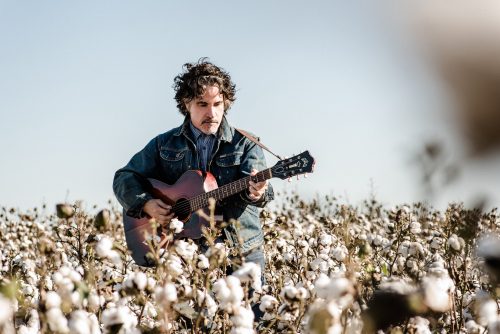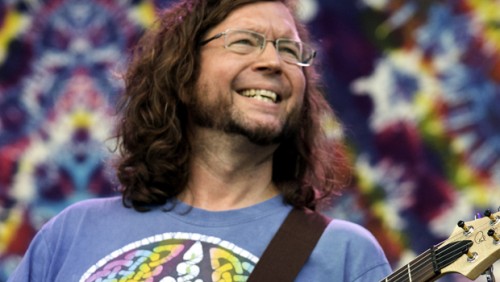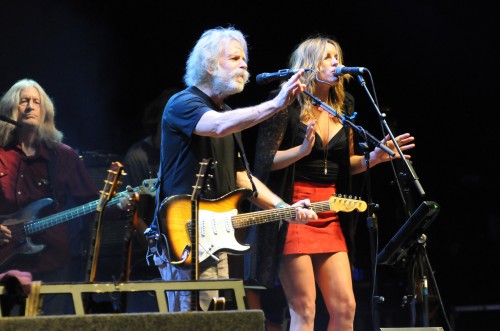John Oates has earned a lofty perch in pop history as one-half of a duo that has sold more records than any duo in history. But outside of that partnership with Daryl Hall, Oates focuses on what helped propel that group to stardom: a love for raw and authentic blues, folk and R&B music.
Oates is on tour with his Good Road Band, supporting his latest release, “Arkansas,” which Rolling Stone had tabbed one of the Most Anticipated Country Albums of 2018.
In advance of his Saturday, Jan. 19, show at Ardmore Music Hall with opening act Jeffrey Gaines, Oates chatted with Highway 81 Revisited about the “happy accident” that led to “Arkansas,” his early musical education in Philadelphia, his collaborations with the Grateful Dead’s Bob Weir and the future of Hall & Oates.
You’ve said of “Arkansas”: “I really believe this is the most vital and satisfying solo project I’ve ever embarked upon.” Why?
Without sounding too overblown about it, it was a gift from the musical gods. I went into the studio and didn’t have expectations that I was going to make this particular album. I went to cut some Mississippi John Hurt songs. He’s my hero and I know all his songs really well. Then I thought, it’s been done, it’ll never be as good as the original, so what’s the point? The songs are so cool and I had never heard them with a band, always acoustic guitar and voice, blues style. What if a band accompanied me? So I assembled a band and it happened like a happy accident. Once we cut the first track I remember my co-producer saying, “I don’t know what you want to call this but it’s great.” It was a completely effortless and joyful experience.
There’s a lot of really nice instrumentation on the album. Do you hear those additional instruments when you’re initially writing the song, or does that come to you later?
When I assembled the band I knew that there would be a unique sound. I’ve actually used a combination of a pedal steel and a cello before, it almost as an orchestral sound. It provides a very lush, amazing, backdrop. And a guy like Sam Bush, who is arguably one of the best mandolin players of all time. It wasn’t me writing and saying “now I need this”; I had all the ammunition.
What are the common threads between your music with Hall and Oates and the type of music on “Arkansas”?
You know what it is? The basics of what I do, what I did with Daryl and what I do on this album, have never changed: knowing how to make a good record. That’s what Daryl and I brought to the table. It’s just a matter of stylistically, from the point of sensibility. … A lot of these songs date back to the 1920s and 1930s, so they’re different, but there’s a common thread because these are the earliest pop songs ever made. Go back to Hall & Oates, known for the pop material and the pop hits. Well, what is a pop song? To me, it universally captures people’s imagination and gets played on the radio and people buy it. In the ‘20s and ‘30s, the phonograph had just been invented. Now songs were played for the first time on the radio.
I watched your solo version of “Maneater” online, and to me it came off as it had been written that way, as a blues song, which was really remarkable.
The version of “Maneater” with my band is really closer to how I originally envisioned it. I came up with the chords and I wrote it as a reggae song. A good song can be done in any way. It’s all about the bones. If it’s got the goods, everything else is icing on the cake. I just wanted to take that song back and play it in a way that I thought maybe this is how it could have been. When I play my solo shows I don’t ignore my history. I want to play some of those songs but I don’t want to replicate Hall & Oates without Daryl Hall. That’s stupid. So what I do is reimagine them.
How would you describe the live show you put on with The Good Road Band?
It’s very kind of loose and personal. Lots of stories, I talk to the audience a lot. The band is just very flexible. We’re not tied down to a setlist. Just amazing musicians and a really positive feeling. It’s essentially two guitars, bass and drums; I don’t carry the pedal steel and mandolin [on tour].
How did you meet Bob Weir, who’s sat in with you and vice versa recently?
We met in 1989. Bob and I met in ‘89, believe it or not, on a bike trip, a mountain bike trip to save the national forest of Montana. He’s very ecologically minded. A good friend of mine put together this trip, two weeks riding through the national forest. Then Bob invited me and Daryl to play with the Dead at Madison Square Garden for a save the rainforest show. We hung out a little bit, and I went up and played Bob’s club, Sweetwater. Every time he’s come in and sat in. Last time was in September and he loved my band, he was like, “What a great band.” He said, “When I come to Nashville, do you want to do a song or two”?
Those seem to be pretty loose situations. Is it basically winging it?
Ya know, yes and know. It’s winging it with some intent (laughs). He is loose and that’s what everybody loves about him and that’s what everybody loves about the Grateful Dead. [In Nashville] he asked, “Do you want to play ‘Friend of the Devil’ with me?” “Yeah, man!”
How would you describe the Philly music scene when you first met Daryl?
For a young musician, it was an incredible education. The decade of the ‘60s I think was the golden age of American R&B. You go to the Uptown Theater on North Broad Street, I saw Stevie Wonder play “Fingertips” when he was 12. Sam & Dave. You could go to The Second Fret or The Main Point or the Philadelphia Folk Fest. That’s when I saw Mississippi John Hurt for the first time, Doc Watson, essentially my musical heroes, experiencing them first-hand. I can go from folk music and rural blues to slick R&B in two seconds. I have facility in all that because I experienced it and experienced it from the sources.
The last all-original album for Hall and Oates was 2003’s “Do it for Love.” Is there a plan or desire to do another one?
I don’t think so. Not right now. I never say never to anything. Quite frankly, our hits and our history seems to overshadow everything that we do together and individually. We go out and do these big concerts and arena shows and people want to hear those guys playing their history. I couldn’t be happier in this situation. Daryl does his TV show and I do this, and that’s where our creativity is.
What do you have planned for the rest of 2019?
‘17 and ‘18 were heavy touring years. Daryl and I are going to play outside the country, we’ll be playing in the U.S. and going to Europe and the UK and South America and the Far East. There are some plans to do something like that this year. And I’ll do some shows with The Good Road Band.
Photo by Philip Murphy




Leave a Reply